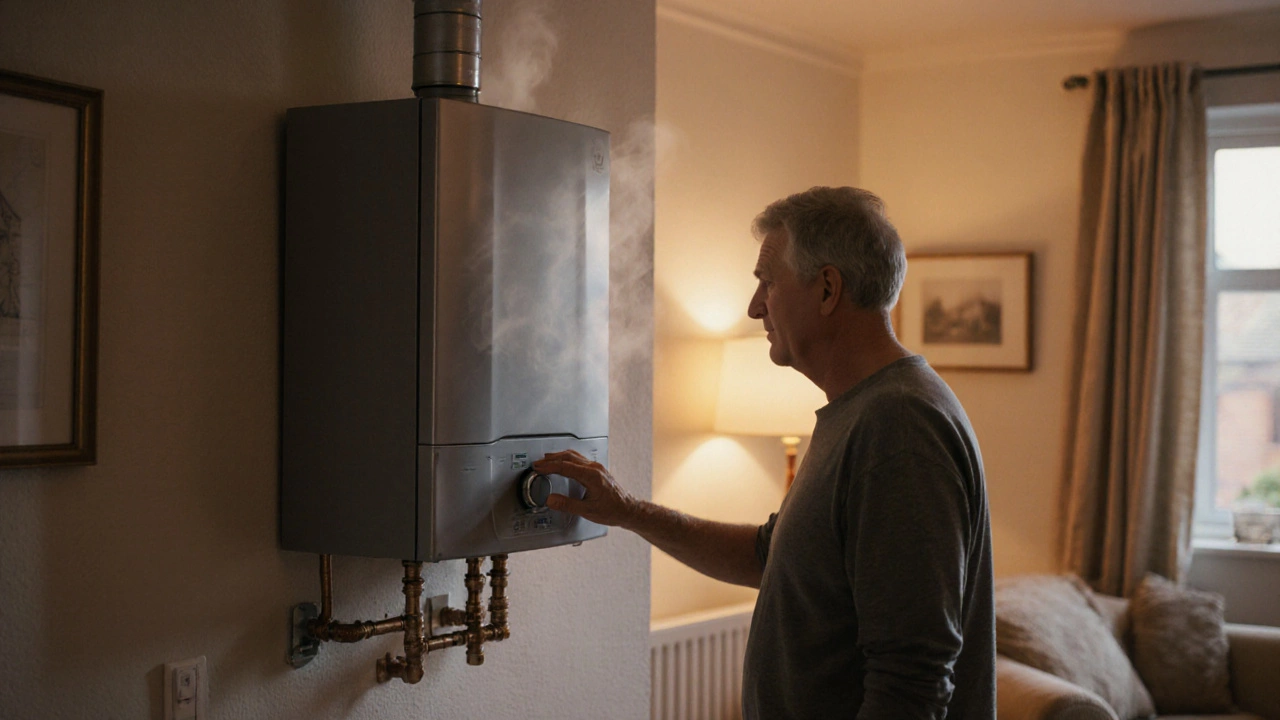When weighing Boiler repair vs replace, the choice between fixing an existing system or investing in a brand‑new unit. Also known as boiler replacement decision, it hinges on factors like age, performance and budget. Understanding these drivers helps you avoid costly surprises and keep your heating reliable.
One of the first things to check is the Boiler lifespan, how many years a typical gas or oil boiler lasts before major components wear out. Most modern boilers hit 10‑15 years with regular maintenance; past that, corrosion and part fatigue raise the odds of repeat failures. If your unit is nearing the end of its expected life, the math often tips toward replacement rather than a one‑off fix.
Another critical piece is Energy efficiency, the ability of a boiler to convert fuel into heat with minimal waste. Newer models regularly achieve 90‑95% efficiency, cutting fuel bills and emissions. When a repair doesn’t address an efficiency gap, you might stay stuck with higher running costs even after the fix.
Cost is the obvious driver. A typical boiler repair vs replace scenario can involve a repair bill of £150‑£500 versus a replacement price of £2,000‑£4,500 plus installation. But look beyond the upfront number: a replacement often comes with a warranty, improved efficiency and lower future maintenance. Conversely, a short‑term fix might be sensible if the boiler is only a few years old and the issue is a single, inexpensive part like a pump or thermostat.
Maintenance history also tells a story. Frequent service calls, recurring leaks or repeated part failures signal a system that’s losing its reliability. A well‑kept boiler with a clear service record can often be repaired safely, while a neglected unit may hide hidden damage that only a full replacement can resolve.
Space and installation constraints matter, too. Some homes have limited clearance for larger, newer boilers, or require a specific venting setup. In those cases, the cost of adapting the installation area can sway the decision back toward repair, especially if the existing boiler fits the space perfectly.
Finally, consider the impact on home comfort. A failing boiler can lead to uneven heating, noisy operation, or sudden shutdowns during winter evenings. If your family can’t tolerate any downtime, the peace of mind that comes with a fresh, reliable unit often outweighs the savings of a repair.Putting it all together, you’ll weigh lifespan, efficiency, total cost of ownership, maintenance record and installation logistics. Each factor connects back to the central question of whether to fix the current boiler or replace it entirely.
Below you’ll find practical guides, cost breakdowns and real‑world tips that dig deeper into each of these points. Use them to map out your own decision tree and choose the path that keeps your home warm without breaking the bank.
Posted by
Orin Trask
0 Comments

Decide if fixing your boiler makes financial sense. Learn cost thresholds, efficiency factors, maintenance tips, and a repair vs replace comparison to choose wisely.
read more